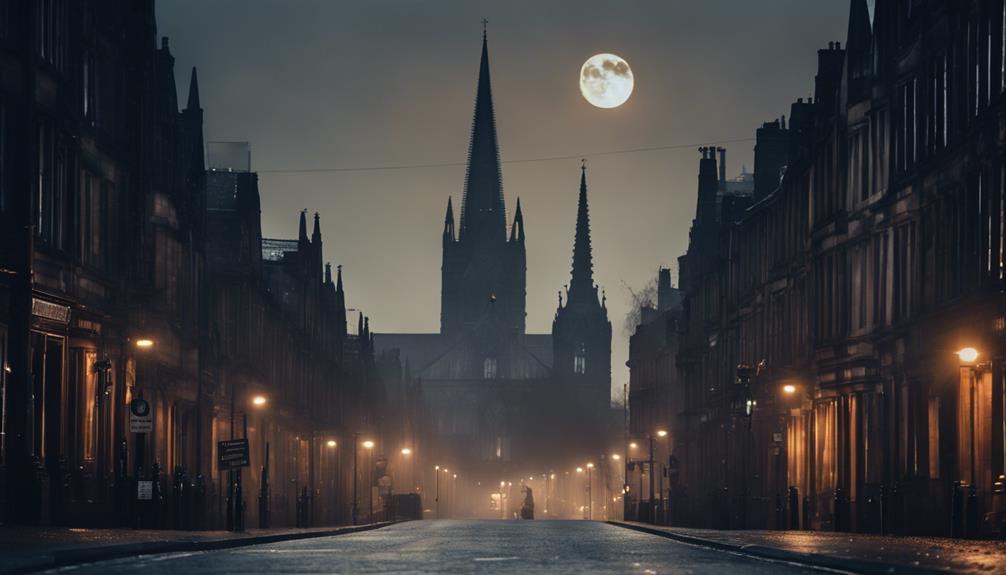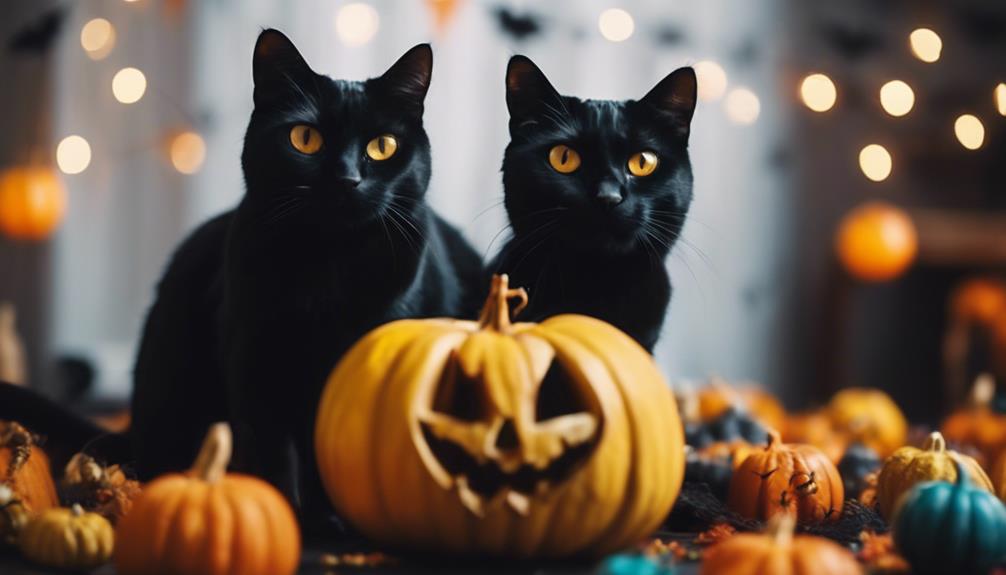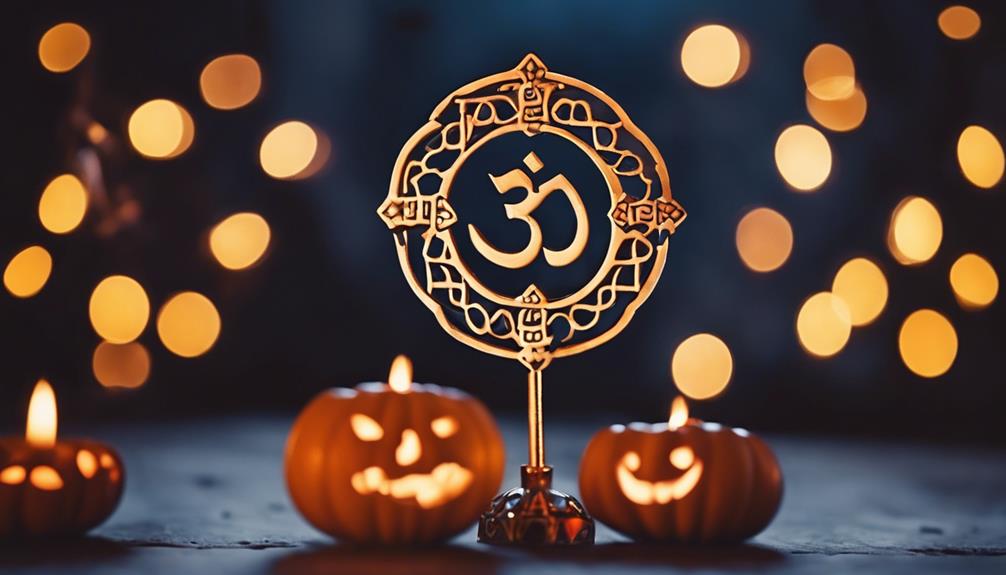God's view on Halloween varies among Christians. Some see it cautiously due to its pagan origins connecting with evil. Others find it a chance for outreach and community bonding. Historical roots like Samhain merging into All Hallows Eve contributed to modern celebrations. Theological debates ponder if Halloween aligns with biblical teachings, emphasizing choice based on personal beliefs. Biblical warnings against witchcraft and darkness may influence opinions. Honoring God during Halloween can involve positivity, light, and love-themed activities. To understand more about God's perspective on Halloween, explore Christian perspectives, historical contexts, theological considerations, biblical insights, and ways to honor God during the celebration.
Key Takeaways
- God's view on Halloween varies among Christians.
- Some see it as an opportunity for outreach.
- Biblical principles guide decisions on Halloween observance.
- Actions during Halloween should align with faith.
- Honoring God involves positive, loving, and compassionate Halloween celebrations.
Christian Perspectives on Halloween
Christian viewpoints on Halloween range from cautious observance to complete avoidance based on individual beliefs and interpretations. For some Christians, the holiday's pagan roots and associations with evil make it a cause for concern. They may choose to steer clear of Halloween activities altogether, aligning their decisions with biblical principles that caution against participating in anything that may glorify darkness or the supernatural.
However, other Christians take a different approach. Some view Halloween as an opportunity for outreach and community engagement. Instead of focusing on the spooky or occult aspects, they use the day as a chance to connect with others, spread positivity, and share their faith in a relevant context. Creative alternatives like hosting fall festivals, trunk-or-treat events, or themed parties provide avenues for celebrating without compromising personal convictions.
Ultimately, whether to celebrate Halloween or not is a personal choice guided by one's faith and conscience. While some Christians opt for avoidance, others see it as a chance to shine light in the midst of darkness.
Historical Context of Halloween
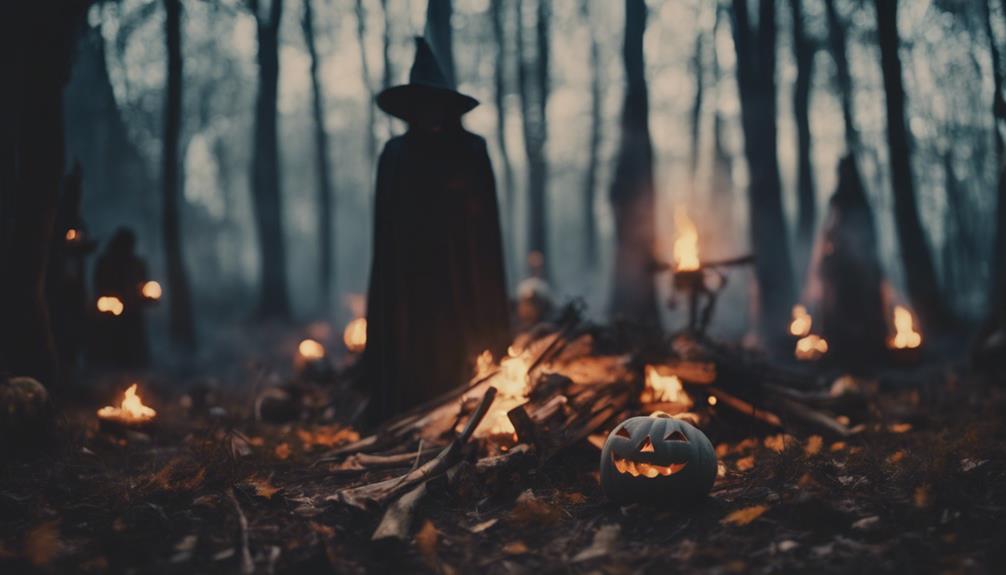
Over 2,000 years ago, the Celtic festival of Samhain marked the end of summer, setting the stage for the origins of Halloween. The ancient Celts viewed this time as a pagan celebration, believing that on the night before the new year, the boundary between the living and the dead blurred. To ward off evil spirits, they dressed in costumes, lit bonfires, and performed rituals. Over time, Pope Gregory III intertwined these pagan practices with Christian beliefs, leading to the establishment of All Hallows Eve, now known as Halloween.
To understand the historical context of Halloween better, let's explore some key elements:
| Ancient Celtic Celebration | Influence of Christianity |
|---|---|
| – Samhain as a new year marker | – Integration of pagan traditions into All Saints Day |
| – Beliefs about the spirit world | – Creation of All Hallows Eve |
| – Customs to protect against evil spirits | – Modern-day Halloween celebrations |
Theological Considerations on Halloween
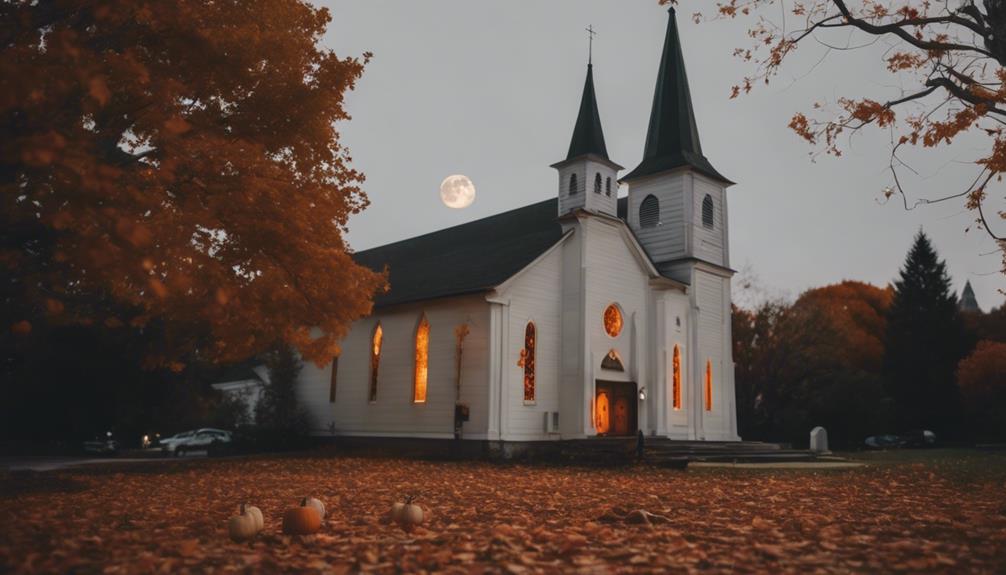
Considering the historical origins of Halloween, the theological implications of this holiday raise questions about aligning observances with biblical principles and faith. As a Christian, you may wonder how to approach a celebration with strong ties to pagan practices and associations with evil and darkness. The Bible says to avoid unfruitful works of darkness, which can lead to a dilemma when it comes to participating in Halloween festivities.
Your response to Halloween should be guided by your Christian faith, personal convictions, and a desire to honor God in all you do.
Some Christians choose to use Halloween as an opportunity to reach out to unbelievers, building new relationships and sharing the love of Christ in a context that may otherwise be focused on darker themes. Others opt to abstain from Halloween altogether, considering it incompatible with their faith.
Whatever your stance, prayerfully considering how to best navigate the theological complexities of Halloween while staying true to your beliefs is crucial.
Biblical Insights on Halloween
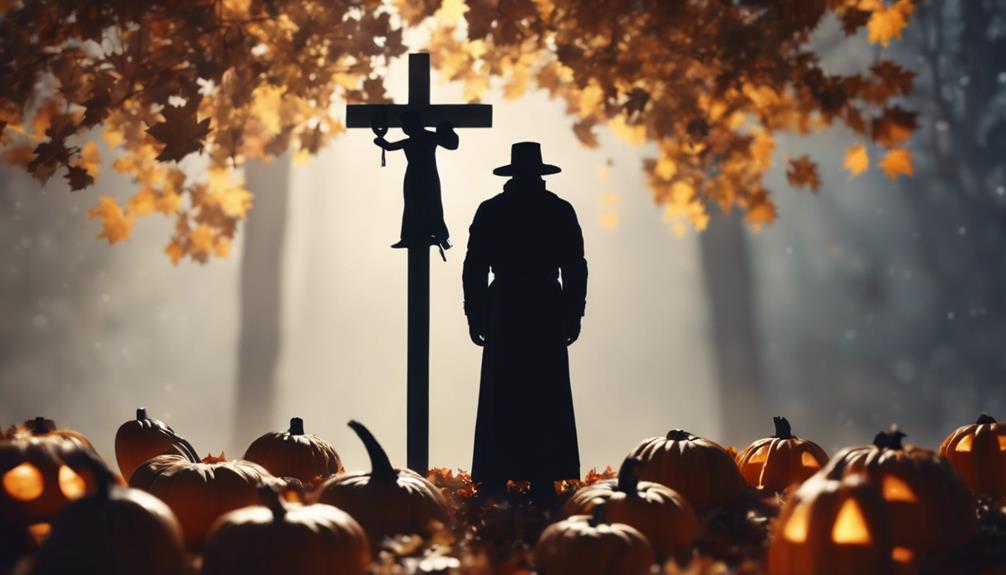
What biblical teachings shed light on Halloween's alignment with Christian beliefs and principles?
The Bible doesn't directly address Halloween, but it does caution against pagan practices like witchcraft and the occult. Deuteronomy 18:10-12 specifically warns against activities such as sorcery, which are commonly associated with Halloween traditions.
Moving to the New Covenant, Ephesians 5:7-15 emphasizes the importance of living in the light and avoiding darkness, themes that are relevant to discussions about Halloween. These passages encourage obedience to God and highlight the contrast between light and darkness, offering guidance for Christians considering their participation in Halloween festivities.
Ultimately, the decision to engage with Halloween is a personal matter for believers, influenced by their convictions and interpretation of biblical principles. As you navigate this topic, consider how these biblical insights shape your perspective and approach to Halloween, keeping in mind the importance of aligning your actions with your faith.
Honoring God During Halloween

To honor God during Halloween, focus on positive and uplifting themes that reflect His love and light. Use this occasion as an opportunity to share God's love with others by engaging in acts of kindness, generosity, and compassion. By embodying these qualities, you can effectively demonstrate and reflect God's values during Halloween.
Incorporate prayer, reflection, and gratitude into your celebrations, taking moments to express thanks and contemplate God's presence in your life. Choose activities that align with biblical principles, such as spreading joy, love, and positivity.
Remember that honoring God during Halloween is about being mindful of your actions and interactions, and consciously choosing to embody the teachings of Christianity. By infusing your Halloween festivities with positivity, love, and compassion, you can create a space that not only celebrates the season but also uplifts the spirit and honors God in the process.
Frequently Asked Questions
What Does Halloween Mean in Christianity?
In Christianity, Halloween, or All Hallows Eve, is the evening before All Saints Day, a holiday honoring saints and martyrs. The name 'Halloween' comes from 'All Hallows Evening,' showing its link to the Christian calendar.
Christians have different views on Halloween, from seeing it as a cultural tradition to avoiding it due to its ties to darkness and pagan origins. Halloween customs like trick-or-treating blend Christian and pagan influences, evolving over time.
What Is the True Meaning of Halloween?
The true meaning of Halloween stems from the ancient Celtic festival of Samhain, marking the end of the harvest season and the start of winter. Over time, Halloween evolved into a blend of pagan and Christian traditions.
Today, it involves costumes, trick-or-treating, jack-o-lanterns, and spooky decorations. Understanding its historical roots sheds light on its significance.
It's fascinating to explore how this holiday has transformed over the centuries.
What Does the Hallows Eve Mean in the Bible?
In the Bible, All Hallows Eve refers to the evening before All Saints Day, a Christian holiday honoring saints and martyrs.
The term 'Hallows' pertains to holy individuals in Christian tradition.
This observance has Christian origins dating back to the 9th century and is tied to commemorating the impact of saints on the faith.
It holds significance in honoring the lives and contributions of these revered figures in Christianity.
What Does the Bible Say About Celebrating?
When it comes to celebrating, the Bible offers guidance on how to approach various festivities. It encourages believers to honor God in all they do, including their celebrations.
Whether it's a holiday like Halloween or any other event, the focus should be on upholding godly values and living in obedience to God's teachings. Making decisions about celebrating should be done with biblical principles and personal convictions in mind, ensuring that one's actions align with faith.
Conclusion
To conclude, whether or not God likes Halloween is a complex topic that can be viewed from different perspectives. Remember to approach this holiday with respect and consideration for your own beliefs and values.
Honoring God during Halloween can involve reflecting on the historical context, considering theological implications, and making intentional choices that align with your faith. Ultimately, the key is to seek guidance from scripture and prayer to guarantee you're honoring God in all that you do during this time of year.


